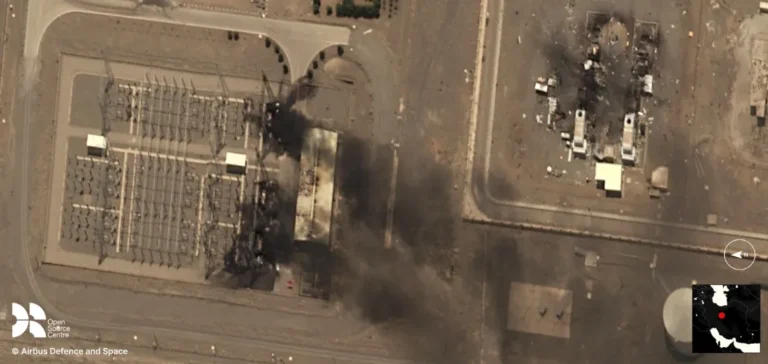Rafael Mariano Grossi, Director General of the International Atomic Energy Agency (IAEA), confirmed that Israeli military strikes targeted sensitive infrastructure at the Natanz nuclear site in Iran. The attacks primarily affected the above-ground portions of the facility, notably destroying critical electrical infrastructure. However, Grossi clarified that strategic underground areas housing centrifuges used for uranium enrichment were not directly impacted. No abnormal increase in radioactivity has been detected outside the site.
Electrical infrastructure targeted
The Israeli bombings completely destroyed electrical installations essential for powering the Natanz nuclear complex, including the main power plant, emergency generators, and backup systems. According to Grossi, this power outage may have indirectly damaged the centrifuges located in underground halls. Furthermore, the pilot uranium enrichment plant, partly located above ground and used to enrich uranium up to 60% isotope U-235, was destroyed in the attack.
Internal contamination and risk management
Radiological and chemical contamination has been reported within the Natanz nuclear complex. Grossi indicated that contamination likely resulted primarily from the dispersion of uranium isotopes, such as uranium hexafluoride (UF6) and uranyl fluoride (UO2F2), generating alpha particles that can be hazardous if inhaled or ingested. However, these risks can be managed using suitable respiratory protection equipment. The IAEA also confirmed that contamination remains confined within the complex.
Stable situation at other nuclear sites
Regarding other Iranian nuclear installations, the Fordow site, located deep underground, suffered no significant damage despite being targeted. In contrast, the Esfahan nuclear complex, which includes a uranium conversion facility and a central chemical laboratory, sustained damage to several buildings. The agency further noted that other critical facilities, such as the civilian Bushehr plant and Tehran research reactor, were not targeted in the strikes.
Diplomatic reactions and continuous monitoring
In response to these events, the IAEA has established an emergency operational group, maintaining continuous contact with Iranian authorities to monitor developments on the ground. Grossi called on all involved parties to exercise restraint to avoid potential regional escalation. The agency stands ready to rapidly deploy its nuclear safety and security experts to affected sites to precisely assess the extent of damage and ensure compliance with international nuclear non-proliferation standards.
The international community continues to closely observe future developments and potential diplomatic repercussions of these strikes on regional and global nuclear diplomacy.






















